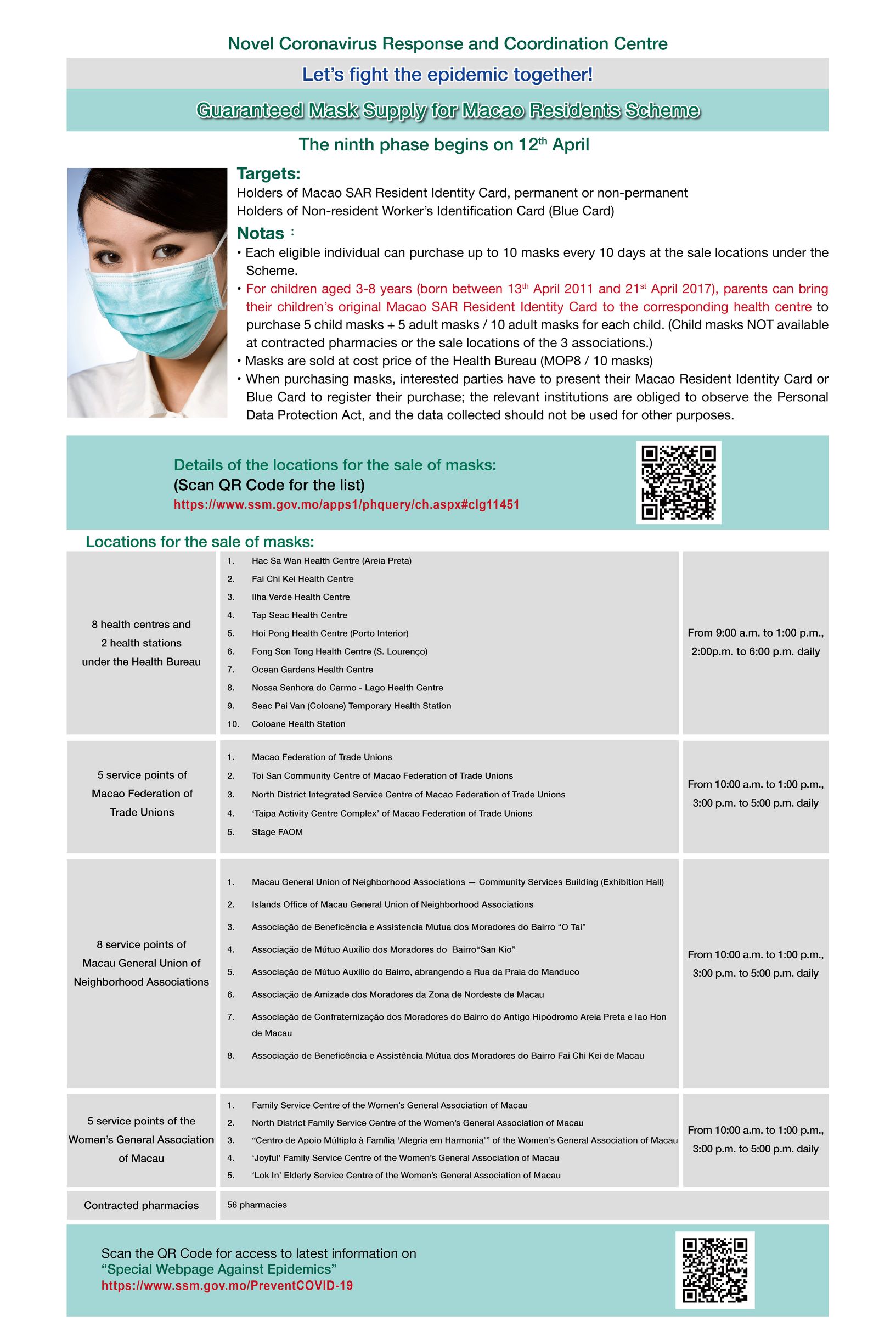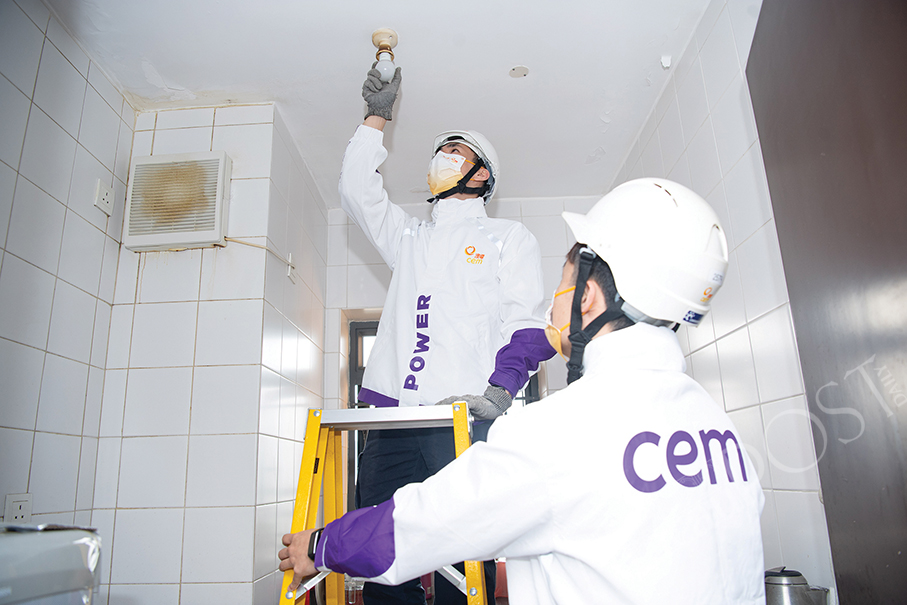The Macau government announced today that its ninth round of facemask sales starts tomorrow.
As in the previous eight rounds, each resident and non-resident worker is entitled to buy 10 facemasks at the fixed price of 8 patacas (US$1) at designated pharmacies, health centres and community association premises. Once again, facemasks for children aged between three and eight will also be on sale. Each child in the age group is entitled to five facemasks. The tie-on and ear-loop facemasks are available at 84 outlets. Senior citizens may request ear-loop facemasks.
So far, each round has lasted 10 days. The eight's round ended today.
Public Conde de Sao Januario Hospital Centre physician Alvis Lo Iek Long said at a daily press conference about the COVID-19 threat today that six million facemasks were sold at the behest of the government in the eight's round. According to public broadcaster Radio Macau/TDM, 46 million facemasks have been sold under the government scheme since late January. Lo said that at least one more round of facemask sales will be organised by the government.
Apart from the government-initiated sales, facemasks are also available at market prices from a variety of outlets such as pharmacies and retail shops, including facemasks for babies and toddlers. The government has said that children under the age of three should not wear facemasks as they could affect their breathing.
Observers say that close to 100% of pedestrians in Macau are wearing facemasks. Facemasks are mandatory to enter public administration premises, hospitals and for public transport passengers. Bank branches, casinos and many other kinds of private businesses also require people to wear facemasks and have their temperatures checked before being allowed in.
Macau, which had a population of 679,600 at the end of last year, has a population density of around 20,650 people per square kilometres, one of the highest in the world.
Macau has 45 confirmed novel coronavirus disease cases, with no deaths. The 10 first patients - seven tourists from Wuhan and three locals - have been discharged from hospital. Almost all of the 45 cases have been imported from the Chinese mainland and overseas, many of them local students who returned from Europe. All local residents returning to the city have to undergo 14-day quarantine and medical observation at a government-arranged facility free of charge. Non-locals, only a few of whom are allowed to enter Macau, have to pay 5,600 patacas for the 14 days of quarantine.
Unlike Hong Kong, Macau has been spared a COVID-19 community outbreak. Analysts have attributed Macau's zero death toll and relatively low number of confirmed cases to the government's swift action against the novel coronavirus, which was launched in late January, and a raft of strict COVID-19 prevention and control measures including tightly controlled entry restrictions for non-locals.
Macau reported its first COVID-19 case on January 22, shortly before the Chinese New Year holiday.










